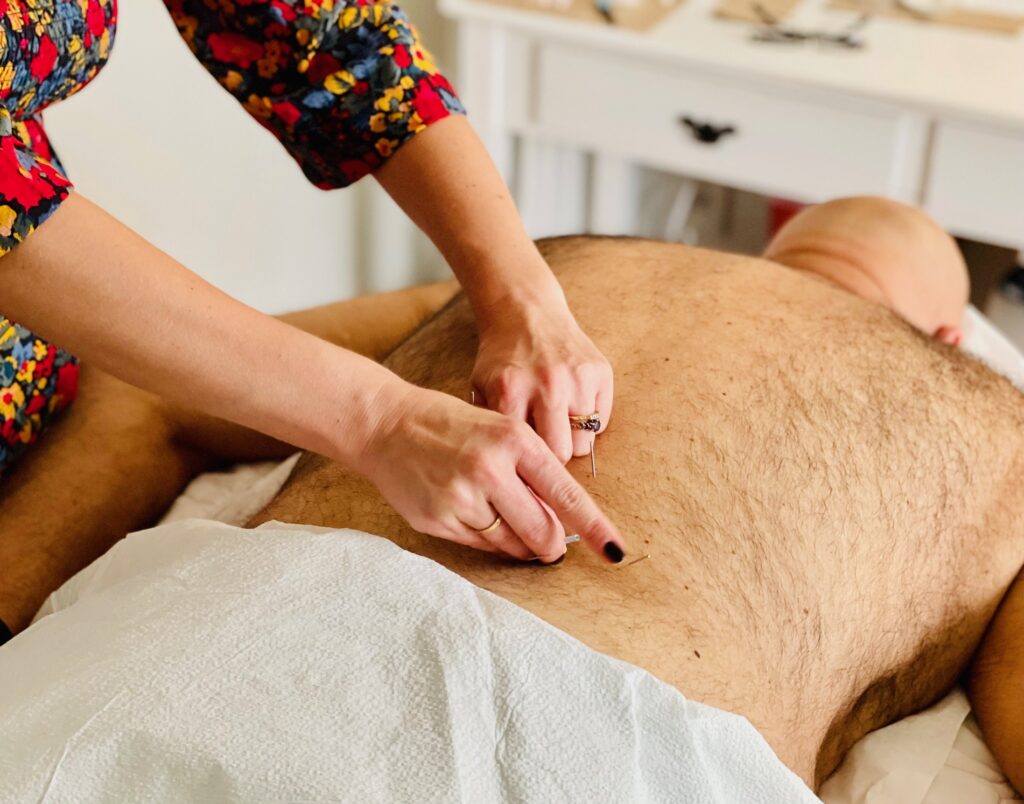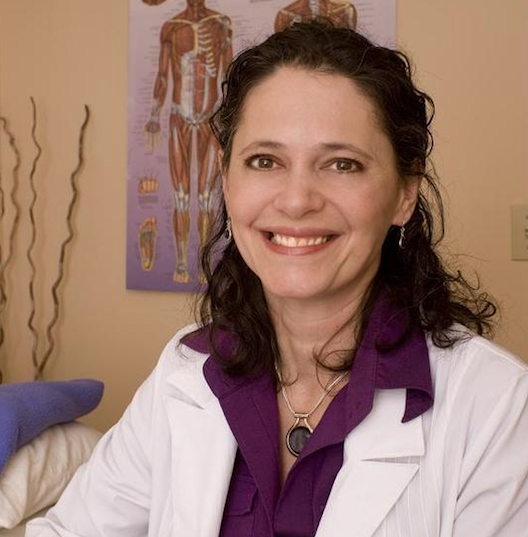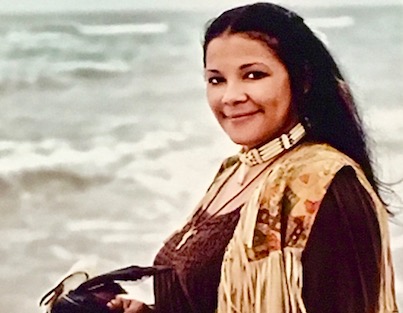Kristin Apple is a Licensed Acupuncturist in the states of Pennsylvania and New Jersey, certified by the Pennsylvania State Board of Medicine and the New Jersey Board of Medical Examiners. She completed her clinical training and received her Master of Science degree from Tri-State College of Acupuncture in NYC.
Hello Kristin Apple, L.Ac., MS, MFA!
Welcome to the Acupuncturist of the Month interview.
So, how long have you been practicing acupuncture for, and what are your specialties?
I became licensed in New Jersey and Pennsylvania in 2016. I specialize in Women’s Health (including Fertility and OB GYN), Musculoskeletal Pain, and Pediatrics.
What inspired you to become an acupuncturist?
Acupuncture gently but powerfully invited me to relax and release control in a way I never knew I could. Consequently, it changed my life forever.
At the time, I was in my early 20s and living in Philadelphia as a visual artist. I had PTSD and chronic pelvic pain. When I first experienced Acupuncture, I knew immediately that it was an extraordinary and consequential medicine. Not only did I find out that it really works to harmonize the whole person and to alleviate symptoms; I also first-handedly experienced its invitation to participate in the therapeutic process.
How do you combine physical, emotional, and spiritual health in your acupuncture practice to benefit the patient?
I believe and see it everyday that the body, mind, and spirit are not separated or segmented from one another at all. Often, if there is a spiritual crisis or even a subtle disharmony, there will be mental struggle. If this spirit-level discomfort or misalignment is not recognized, seen, or resolved, greater mental stress occurs and eventually physical dis-ease results.
That said, I believe imbalance, dis-ease, and disharmony are necessary aspects of living. We are living in flux and cannot live in a statestart of perfect “balance” at all times. The challenge of disharmony teaches us a great deal. If one can stay engaged in the process, one’s specific life becomes an incredible and profound work of art.
Therefore, rather than only treat physical symptoms alone from week to week, I attempt to see into the individual and address his/her/their whole being.
Beyond acupuncture, I use what Mark Seem called “Qi dynamics” to interface with the patient in the present moment in a way that I hope reminds the person of their truest self. I do that by bringing my truest self to the interaction as best I can.
How do you feel your education in studio art has helped you as an acupuncturist?
Perhaps you can understand the resounding parallel between creative interests and what it means to be an Acupuncturist. The creative interface and process is just as present between the patient and the practitioner, as it is between one’s own health and oneself.
I knew I needed to enter the field of medicine and specifically practice Acupuncture because life itself is a creative process and inherently involves periods of chaos and order. Our own bodies are the most substantial and intimate artworks we encounter. Each body is a live artwork, both subject to a mysterious unfolding and also ready and able to participate and make choices.
On your journey to become an acupuncturist, what obstacles did you face and how did you overcome them?
I commuted for the first 2 years from New Jersey to Manhattan. Sometimes, depending on the class schedule, I’d get home at midnight and need to be on the 6 AM train the following morning. That was exhausting. But my desire and passion for this medicine fueled me, and I knew the schlep was temporary. I also recognized the privilege of my experience and embraced it wholeheartedly. In the 3rd year, New Jersey decided to significantly increase the number of clinical residency hours required in order to become licensed. This number of hours was not built into the New York school’s education, so I needed to almost triple my hours working as a clinician. That wasn’t easy, but it certainly was enriching! At that point, I decided to rent an apartment in Brooklyn.
Share a recent success story you had with a patient. What acupuncture points, herbs, or other interventions (meditation, yoga, nutrition, etc) did you use to help them achieve results?
Every single time a female fertility patient gives me the big news that she is pregnant, I am overjoyed, elated, ecstatic!
One recent case: a 38-year-old woman had been married and trying to conceive for 10 years. She had already undergone 3 IVF cycles. The cause of her infertility was unknown, as her cycles were normal. Her bloodwork and hormone levels were normal too! Her husband’s fertility appeared normal as well. She was not a particularly anxious person. In fact, she had a great attitude.
Upon examination, I noticed a Spleen Yang deficiency with hypothyroid-like symptoms, including tending toward feeling cold, lack of energy, joint pain, weight gain, and some thinning in her hair. Her tongue and pulse revealed Cold and Dampness. But it wasn’t showing up in her bloodwork. Her digestion was often sluggish.
On the spirit level, this young woman felt blocked in her creativity. She wasn’t very happy with her job and knew she was capable of much more. She felt torn about wanting to figure out her calling in terms of work and the desire to become a mother. When overwhelmed with such confusion, she would go into a sort of depressive cocoon.
I treated her with Acupuncture by tonifying her Spleen Yang, often including the following points: SP3 (with moxa), SP6, SP9, ST 36 (with moxa), KD7, ST25, CV6, PC6, KD 27, ear shen men, Du 20.
I recommended that she eat warming foods and that she avoid cold foods, dairy, alcohol, sugar, and too much gluten.
The patient had her 4th and final IVF transfer after 6 weeks of acupuncture. We did acupuncture the day before and the day after transfer. She came in 2 weeks later and told me, “You are the first to know– I’m pregnant!”
Your website says you specialize in women’s wellness. To the women out there who are considering acupuncture for a variety of reasons, but haven’t yet taken that first step to see an acupuncture practitioner, what would you like to tell them about acupuncture? How can acupuncture & TCM help improve their lives?
As much as we are making great strides to create a world and US society that supports women, we still have a long journey ahead. One of the major challenges I see to both men and women is that our society is so very yang-dominant. People are doing, doing, doing (i.e. active yang) and losing touch with being for the sake of being (i.e. passive yin). This creates a sympathetic dominance, which can disturb all kinds of physiological processes, such as sleep, respiration, digestion, and the endocrine system.
One of the main things I wish to offer people who come to my practice is a haven to simply be… a safe place to rest…a space where they can practice shifting out of doing and into simple being. Women especially need this in order for their bodies to feel good and to function. And they aren’t getting enough time for it! The nice thing about Acupuncture is that the individual doesn’t need to do anything– the body’s inherent wisdom takes over and welcomes the re-training back to its happy place of peace.
We see that you also offer mobile group acupuncture! Tell us more about the inspiration behind offering this service.
It started when one of my patients was planning a spa-like bachelorette weekend for her best friend, the bride-to-be. She was wishing she could give the special experience of acupuncture to the bride, who had been feeling pretty anxious. In my previous business location, I had offered community acupuncture. The thought occurred to me that my practice could offer mobile group acupuncture for events, such as the bachelorette weekend I mentioned, corporate health fairs, yoga festivals, etc. It’s been great! I do recommend that two or more practitioners work such events if the size of the group exceeds six people.
What makes you feel inspired about acupuncture?
More than I can even put into words! Acupuncture is a field that I can explore and investigate my entire life. As I talked about earlier, the creative interface of it is incredibly inspiring to me. That real-time interaction and the spontaneous shifts in healing that can occur in the present moment for both patient and practitioner to witness– that reminds me of making art! On a more personal level, Acupuncture is the medical art that called my spirit home to my body. In doing so, it called me home to this world– my family, my community, the planet, and this universe. Acupuncture has helped me and continues to help me feel my own place in this vast universe.
Looking back, what advice would you have given to the younger version of yourself, who was just getting started in this profession?
1. You like to work really hard, and sometimes you will find out that you’ve gone too far. Don’t forget to rest, silly. And pamper yourself every now and then!
2. Trust your gut in practice and in business.
What keeps an acupuncture practice going?
A few things come to mind:
1. Honesty and integrity in every aspect of business.
2. Entrepreneurial excitement, which involves a healthy combination of childlike curiosity, creativity, and risk-taking.
3. Patience and faith.
4. Gumption and grit– don’t throw in the towel when things get tough. Dig in!
5. Truly loving the humans who become your patient base.
What are specific roadblocks to watch out for as a new acupuncturist?
Boundaries: There are some great classes taught in school on “boundaries.” But there’s no better teacher than that odd real-life situation where your boundaries are tested. As a new practitioner, it is imperative that you find that happy place in management of your own boundaries. This is applicable in the following areas (to name a few): sexuality, finances, family/friends, employees, time-management, life-work balance, burn-out, etc.
We have all occasionally had a patient come into our practice who is upset, frustrated, and a little angry. Maybe it’s from work, being stuck in traffic, or life in general – we have all been there! What advice would you give to fellow acupuncture students and/or colleagues on how to deal with situations like these?
Don’t take a patient’s mood personally. This is a good example of when your own healthy boundaries will protect you from absorbing and reacting to a patient’s mood or personal circumstances. Instead, attempt to hold a space where the patient can return to his/her/their truest self. How does one hold such a space? Slow yourself down, breathe, and practice presence and compassion. Model steadiness and sturdiness for the patient. This is not being a doormat. You will not let the patient act out of turn. Imagine that the patient is spooked and needs help calming down. Patients usually come around on their own without you having to confront them. This actually builds trust, and the patient is later willing to reveal more of themselves after such situations.
What are your favorite acupuncture points, and why?
KD 3 is just so restorative. LV 3 is often needed. Xiyan points, GB 41, and the bladder sacral foramen points are deeply satisfying to experience if there’s inflammation in those areas, and they are fun to do as the practitioner. Trapezius (GB21 area) trigger points are often dying to be released. Bladder 23 is comforting and restorative. I’ll pause there.

“I’m proud to know that my practice has grown, thrived, and sustained itself on the virtues I value most: courage, integrity, kindness, and humor.” – Kristin Apple, L.Ac, MA, MFA
Tell us about some herbal formulas and foods you find yourself consistently recommending to your patients, friends, and colleagues. What makes these herbs/foods so helpful?
Zhi Bai Di Huang Wan is probably the most common herbal formula I prescribe in my practice. I don’t use herbal formulas unless I really think it’s necessary. A lot of times, perimenopausal or menopausal women really benefit from that extra support this formula provides. Most women get pretty immediate relief from night sweats, hot flashes, and anxiety, as the formula tonifies yin and quells pathogenic fire.
As for foods, lately I’ve been recommending that patients shift their habits around sugar and carbohydrates. After reading Jessie Inchauspie’s Glucose Revolution: The Life-Changing Power of Balancing Your Blood-Sugar, I’ve realized the benefits pretty much apply to everyone (even those whose blood work doesn’t reveal high glucose levels). The major tip is to eat fiber first or before your carbs. The insoluble fiber slows the speed that the glucose hits the bloodstream and, consequently, prevents oxidative stress. This alone can relieve all kinds of health complaints, such as headaches, insomnia, fatigue, acne, low libido, and inflammation.
Tell us about your time at Tri-State College of Acupuncture in NYC. What experiences at acupuncture school made a big impression on you?
I loved my experience at Tri-State College of Acupuncture and am deeply saddened by its collapse. Tri-State was the oldest acupuncture school in the New York area (established in 1979) and was considered one of the foremost acupuncture colleges in America. One of the many reasons I chose the school for study: founder Mark Seem had previously studied French philosophy, and he cared a lot about bridging the gap between east and west in terms of how acupuncture addresses the individual’s disease patterns in society. The curriculum, while requiring full apprehension of national acupuncture standards like TCM, was uniquely influenced by western philosophy.
The faculty and my classmates were/are wonderful, passionate people. I feel thankful I had the experience at TSCA before it permanently closed.
Sometimes, the best resource for improving our skills is by learning from the other acupuncturists we meet along our professional journey. What is one thing you learned from a fellow acupuncturist or holistic practitioner that has helped you in your professional growth, or in your care for patients?
As I mentioned earlier, Mark Seem’s passionate idea about “Qi dynamics” spoke to me. The idea that the treatment is not mechanical but dynamic and chaotic (in an unpredictable, good way) has helped me remember my role in treatment, to more effectively care for individuals, and to stay engaged in my work.
The COVID-19 pandemic has without a doubt had a significant impact on the acupuncture practice community and small businesses alike, and while it’s on the mend, we are still navigating through the new normal as acupuncture providers. How has COVID-19 changed your practice? Have you added or removed any services due to the pandemic?
COVID-19 did push me to create legitimate Telehealth services, such as private qi gong or guided meditation sessions, nutritional and lifestyle counseling, and self-administered acupressure protocols. Many patients continue to take advantage of these services.
Do you have any daily habits or rituals that keep you at your “best-self”, both as an acupuncture practitioner and person?
I consciously exercise every day. I suppose you could call it a moving meditation– I practice bringing my body, mind, and breath into unified flow.
I lie down for at least 5 minutes and practice just being.
I practice simple presence everyday with loved ones, patients, strangers, the dishes, eating, etc.
The kindest thing a patient said to you recently:
Last week, one of my patients told me that I am an authentic and wise practitioner. It was unexpected and coming from an individual who is not a grandiose or ego-stroking type of person.
The funniest thing a patient said to you recently:
One of my pediatric patients told me I should dye my hair and eyebrows blue with purple and pink stripes. I mean, I thought about it.
As an acupuncturist, what are you most proud of thus far in your professional journey?
I’m proud to know that my practice has grown, thrived, and sustained itself on the virtues I value most: courage, integrity, kindness, and humor.
If you could have a billboard with anything on it, what would it be and why?
You are where you need to be– here and now.
That’s a helpful, comforting reminder for any moment in life.
What is your definition of success?
To me, success is finding greater life mobility via the realization of love.
If you could have one superpower what would it be and why?
To sing (and sing well and without fear) in a great band. In other words, to make music.
*Rapid fire questions! *:
Morning or night? Night
Tea or coffee? OK, I’ll admit it— Coffee, even though it is evil.
Sun or moon? Moon
Cupping or Tui na? Tui na
Yin or Yang? Yin
Meditation or exercise? Exercise
Instagram or Facebook? IG
Top 3 Favorite Books? Oh man! That’s truly impossible for me to answer. So I’ll go with the first three that come to my mind. 1. On Touching, Jean Luc Nancy, 2. Nonviolent Communication, Marshall Roseberg, 3. Adventures in the Open, Nina Wilcox Putnon.
Where can other licensed acupuncturists, students, and patients go to learn more about your work?
www.applepuncture.com


